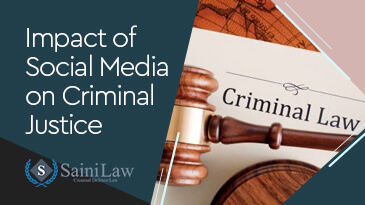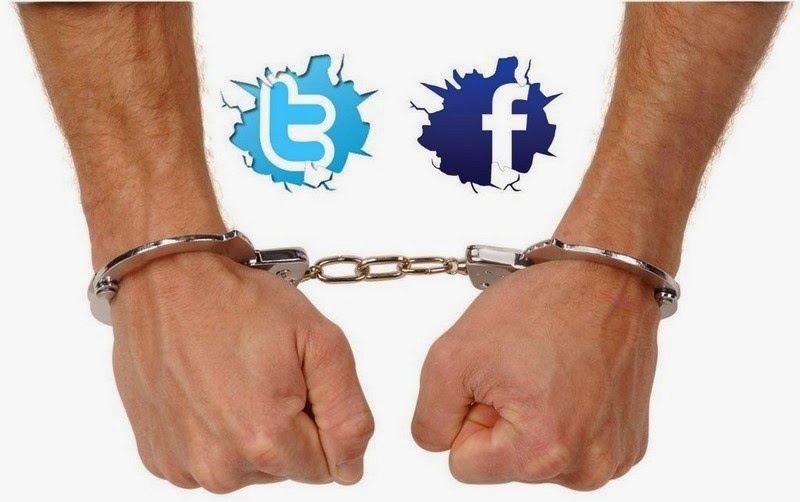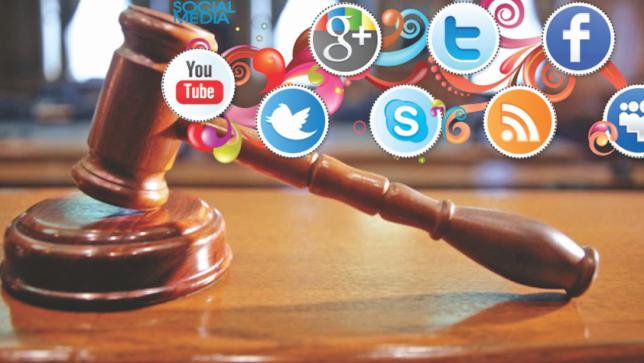In today’s digital age, the influence of social media on various aspects of our lives is undeniable. However, it is often overlooked how this seemingly innocent platform can have significant repercussions on court cases. With the widespread availability of information and the ease of sharing opinions, social media has the power to shape public perception and potentially bias the outcome of a trial. In this article, we will explore the impact of social media on court cases and delve into the frequently asked question – how does social media affect court cases?
Brace yourself for a thought-provoking exploration into the intersection of justice and the virtual world.
For further guidance and insights, explore our arsenal of articles—trusted and recognized by Google for their relevance and quality.
The Impact of Social Media on Court Cases

This image is the property of lawcpd.com.au.
Overview of the topic
In today’s digital age, social media has become an integral part of our lives, influencing various aspects of society, including the legal system. Social media platforms have revolutionized the way information is disseminated, altering the behavior of jurors, influencing jury selection, affecting the perception of defendants, potentially impacting witness testimonies, playing a role in the discovery process, challenging impartiality, raising ethical dilemmas, and even being used to determine credibility. This article aims to explore the multifaceted impact of social media on court cases.
Social media’s role in disseminating information
Social media platforms, such as Facebook, Twitter, and Instagram, have transformed the way we share and consume information. With the click of a button, news travels at an unprecedented speed, reaching millions of users within seconds. This instantaneous nature of sharing information can significantly impact court cases. Updates on ongoing trials, legal arguments, and court proceedings can quickly go viral and reach potential jurors, witnesses, and even the defendants themselves.
This widespread dissemination of information through social media poses both benefits and challenges to fair and unbiased court proceedings.

This image is the property of www.saini-law.com.
The influence of social media on juror behavior
Jurors are expected to make decisions based solely on the evidence presented in court. However, the ubiquity of social media has made it increasingly difficult for jurors to avoid exposure to external information that may influence their opinions. Jurors may unknowingly encounter posts, articles, or discussions related to the case they are serving on, which can taint their objectivity.
Social media’s influence on juror behavior raises concerns about the fairness and integrity of jury trials.
The use of social media in jury selection
Social media has also altered the process of jury selection. In an attempt to gain further insights into potential jurors, lawyers and investigators frequently turn to social media platforms to gather information about their backgrounds, interests, and beliefs. This practice, commonly known as “social media vetting,” can provide valuable information to attorneys but also raises concerns about privacy invasion and bias during jury selection.
The use of social media in jury selection highlights the evolving role of technology in shaping our legal system.

This image is the property of 3.bp.blogspot.com.
The impact of social media on the perception of defendants
Defendants in court cases often face public scrutiny, and social media exacerbates this by amplifying public opinions and perceptions. Social media platforms have the potential to shape public sentiment about defendants before, during, and after their trials. This can lead to a biased and unfair judgment based on information that may not be admissible in court.
The impact of social media on the perception of defendants can significantly affect their ability to receive a fair trial and can have lasting consequences on their lives.
The potential for social media to affect witness testimonies
Witness testimonies play a pivotal role in court cases, and their credibility is of utmost importance. However, social media introduces new challenges in maintaining the integrity of witness testimonies. Witnesses may be influenced by social media discussions, news articles, or even direct interactions with other trial participants, which can impact the accuracy and credibility of their accounts.
The potential for social media to affect witness testimonies raises concerns about the reliability and truthfulness of the evidence presented in court.

This image is the property of the blog. leaders. in.
The role of social media in the discovery process
The discovery process, where each party shares their evidence with the opposing side, has also been affected by social media. Lawyers now rely on social media platforms to gather information about individuals involved in the case, potential witnesses, or even jurors. Social media posts, photos, and videos can provide valuable insights into a person’s activities and behaviors, which can be used to support or challenge arguments.
However, the use of social media in the discovery process brings forth ethical questions regarding privacy, relevance, and the admissibility of such information in court.
The challenges of social media in maintaining impartiality
Impartiality is a cornerstone of the legal system, ensuring fair and just outcomes. However, social media poses significant challenges in maintaining impartiality. Jurors, witnesses, attorneys, and even judges may be exposed to external information or bias, either consciously or unconsciously, leading to compromised objectivity.
The constant influx of information through social media complicates the task of ensuring a fair trial for all parties involved.

This image is the property of d3i71xaburhd42.cloudfront.net.
The ethical implications of social media in court cases
The increasing reliance on social media in court cases raises ethical concerns. Privacy invasion during jury selection, the impact of social media on witness testimonies, the potential for online harassment or threats towards trial participants, and the difficulty in controlling the spread of misinformation are just a few examples of the ethical dilemmas posed by social media.
Balancing the benefits and risks of social media in court cases requires careful consideration of ethical guidelines and regulations to maintain the integrity of the legal system.
The use of social media in determining credibility
Determining credibility is a critical aspect of court cases, and social media has added another layer to this process. Online profiles, posts, and interactions can be used to assess the credibility of witnesses, experts, and even defendants. However, the challenge lies in distinguishing between genuine content and fabricated or manipulated information.
The use of social media in determining credibility requires caution and scrutiny to ensure that it contributes to a fair assessment of the evidence.
FAQ for the article “The Impact of Social Media on Court Cases”
Q: How has social media affected crime?
A: Social media has had a significant impact on crime in a number of ways.
-
Increased visibility of crime: Social media platforms have made it easier for people to share information about crimes, including photos and videos. This can help to raise awareness of crime and encourage victims and witnesses to come forward.
-
Mobilization of crime: Social media can be used to organize and mobilize criminals, making it easier for them to commit crimes and evade capture.
-
Cybercrime: Social media is a breeding ground for cybercrime, such as identity theft, fraud, and online harassment.
-
Evidence gathering: Social media posts can be used as evidence in court cases, both for the prosecution and the defense.
-
Jury selection: Social media can be used to research potential jurors and identify potential biases.
-
Reputation management: Social media can be used to manage the reputation of individuals and organizations involved in court cases.
Overall, the impact of social media on crime is complex and multifaceted. While there are some potential benefits, such as increased visibility of crime and mobilization of victims and witnesses, there are also significant risks, such as increased cybercrime and the use of social media to organize and mobilize criminals.
Q: How does the media affect crime?
A: The media can have a significant impact on crime in a number of ways.
-
Reporting on crime: The media can help to raise awareness of crime and encourage victims and witnesses to come forward. However, the media can also sensationalize crime, leading to public fear and anxiety.
-
Portraying criminals: The media can influence public perceptions of criminals, both by demonizing them and by humanizing them.
-
Influencing crime prevention: The media can promote crime prevention strategies, such as neighborhood watch programs and public safety campaigns.
-
Setting the agenda: The media can influence the public agenda by focusing on certain types of crime or by framing crime issues in a particular way.
Overall, the relationship between the media and crime is complex and nuanced. The media can play a positive role in raising awareness of crime and promoting crime prevention, but it can also have negative effects, such as sensationalizing crime and influencing public perceptions of criminals.
Q: Has crime increased due to social media?
A: There is no clear consensus on whether crime has increased due to social media. Some studies have found a correlation between the rise of social media and increases in certain types of crime, such as cybercrime and violence. However, other studies have found no such correlation, and it is difficult to isolate the impact of social media from other factors that may contribute to crime.
Q: What are social media crimes?
A: Social media crimes are a broad category of offenses that involve the use of social media platforms to commit criminal acts. These crimes can include:
-
Identity theft: Using social media to steal someone’s personal information to commit fraud.
-
Cyberbullying: Using social media to harass, intimidate, or threaten others.
-
Fraud: Using social media to deceive or trick others into giving money or personal information.
-
Online stalking: Using social media to track and harass someone.
-
Spreading misinformation: Using social media to spread false or misleading information.
Q: Does social media increase fear of crime?
A: Some studies have shown that social media can increase fear of crime. This is likely due to the fact that social media can expose people to a lot of information about crime, including graphic photos and videos. This can lead to a sense of overexposure to crime, which can contribute to feelings of fear and anxiety.
Q: What is online and social media crime?
A: Online and social media crime is a broad term that encompasses any criminal activity that takes place on the internet or through social media platforms. This includes crimes such as identity theft, cyberbullying, fraud, and online harassment.
Q: What is true crime in media?
A: True crime is a genre of media that focuses on real-life crimes. This can include documentaries, TV shows, podcasts, and books. True crime is often popular because it is fascinating and suspenseful, but it can also be disturbing and upsetting.
Conclusion
In conclusion, social media has undeniably transformed the landscape of court cases. It plays a pivotal role in disseminating information, influencing juror behavior, shaping the perception of defendants, potentially affecting witness testimonies, aiding the discovery process, challenging impartiality, presenting ethical dilemmas, and determining credibility.
As social media continues to evolve, it is crucial for the legal system to adapt and establish guidelines and regulations to ensure fair and just outcomes in an increasingly digital world.
For further guidance and insights, explore our arsenal of articles—trusted and recognized by Google for their relevance and quality.
Additional resources

My name is Abdukhakim Kholboev. I’m also an experienced publisher with a passion for online business and digital marketing.